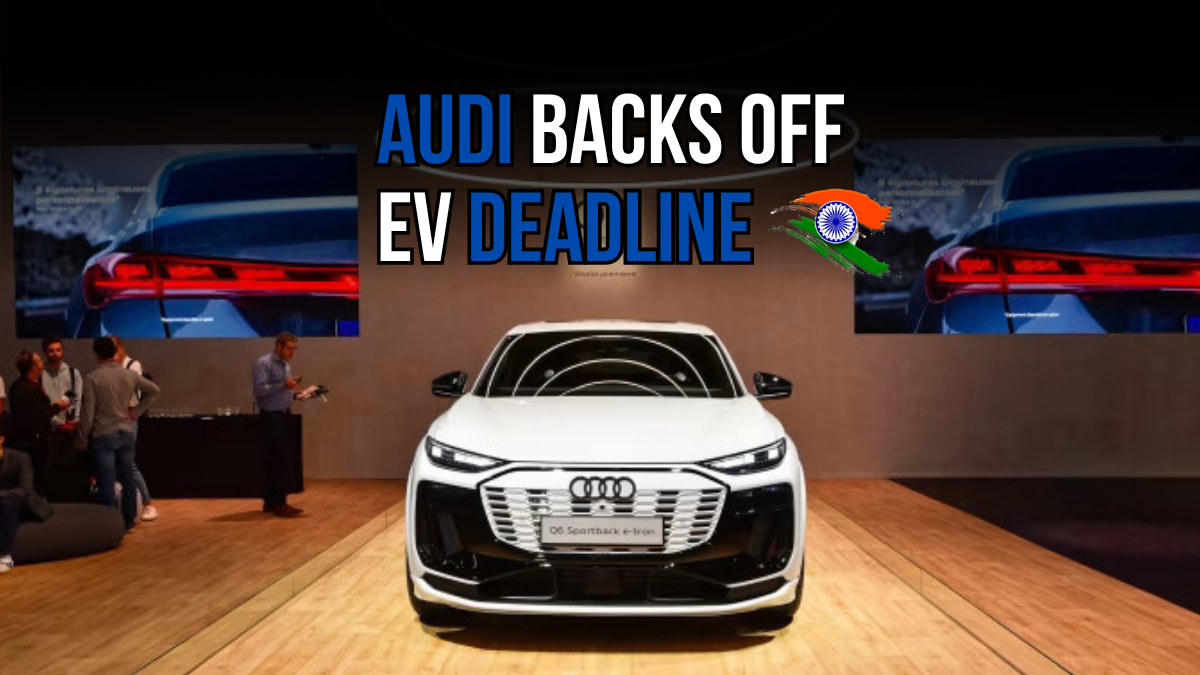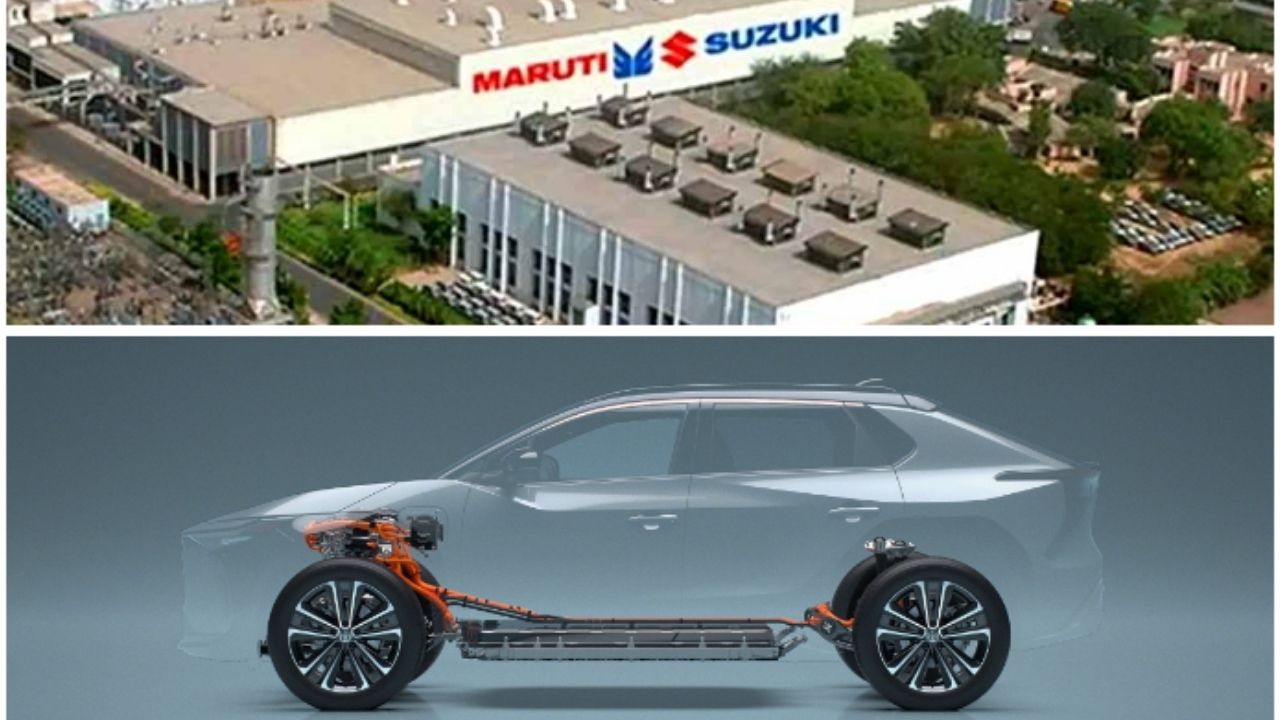In a surprising yet calculated strategic shift, Audi has decided to continue producing internal combustion engine (ICE) vehicles until 2035, delaying its previously declared goal of becoming an all-electric brand by 2033. As global markets grapple with EV readiness, infrastructure challenges, and evolving consumer preferences, Audi’s latest decision reflects the complex transition the automotive world is navigating.

For Indian readers, this development is particularly significant. While electric mobility is growing in India, the pace is slower compared to Europe and China. Audi’s choice to keep petrol and hybrid options on the table for longer aligns well with the needs of Indian buyers who still rely heavily on fossil-fuel-powered vehicles.
Summary Table: Audi ICE vs EV
Aspect |
Audi ICE Vehicles |
Audi Electric Vehicles |
|---|---|---|
Powertrain |
Petrol / Mild-Hybrid / Diesel |
Pure Electric |
Availability in India |
High (Q3, Q5, A4, A6, etc.) |
Limited (e-tron, Q8 e-tron, RS GT) |
Infrastructure Dependency |
Low |
High (requires charging network) |
Running Cost |
Higher fuel cost |
Lower per km (electricity) |
Service Network |
Wide |
Limited EV-certified workshops |
Vehicle Cost |
Moderate to high |
High (due to CBU imports) |
Range/Refueling |
Quick refueling, long range |
Range limited, longer charging time |
Ideal Buyer |
Traditional car owners |
Early tech adopters |
What Was Audi’s Original EV Plan?
Back in 2021, Audi boldly announced that it would stop launching new internal combustion engine models by 2026 and fully shift to electric-only vehicles by 2033. The brand began investing heavily in e-mobility, releasing EVs like the Audi e-tron, Q4 e-tron, and RS e-tron GT.
The plan was aligned with parent company Volkswagen Group’s strategy to push electrification across all its brands. Audi wanted to lead this transformation by becoming a fully electric luxury automaker.
However, market dynamics in 2024 and 2025 have forced the brand to reconsider its timeline.
Why Has Audi Changed Its Decision?
There are several reasons Audi has now opted to extend the life of its gasoline-powered vehicles:
1. Slower EV Adoption Globally
Despite strong growth in EV sales, adoption has slowed in key markets like the U.S., Germany, and Japan. High prices, limited charging infrastructure, and battery concerns have made consumers cautious.
2. Lagging Infrastructure in Emerging Markets
In markets like India, South America, and Southeast Asia, charging stations and power grids are still catching up. Luxury car buyers in India, especially outside tier-1 cities, still prefer ICE vehicles for convenience.
3. Flexible Platform Investment
Audi is developing flexible vehicle platforms that support both EV and ICE powertrains. This allows them to cater to multiple markets without overcommitting to one technology too early.
4. Cost and Profitability
EVs are expensive to develop and currently less profitable than ICE vehicles. Continuing ICE production ensures Audi maintains healthy margins during the transition phase.
What Models Will Audi Continue to Produce?
Audi plans to continue updating and selling existing ICE and hybrid models beyond 2026, especially in markets with strong demand. These include:
-
Audi A4 and A6 (with updated mild-hybrid tech)
-
Audi Q5 and Q7 SUVs
-
Audi performance models like the S and RS range (select models)
New launches post-2026 will mostly be EVs, but ICE vehicle production will not fully stop until 2035, particularly for countries where demand remains strong.
Audi’s Future EV Plans Still On Track
While the deadline shift is notable, Audi hasn’t abandoned its electric future. The brand is still:
-
Launching new EVs like the upcoming Q6 e-tron
-
Expanding battery production facilities across Europe
-
Investing in PPE (Premium Platform Electric) co-developed with Porsche
-
Enhancing fast-charging networks and partnerships
So, the shift is more of a strategic adjustment rather than a reversal.
Impact on Indian Market
India is still at the beginning of its EV journey. High import duties, inadequate charging stations, and range anxiety have made luxury EV adoption slow. While Audi does offer electric models like the e-tron, Q8 e-tron, and RS e-tron GT, the majority of its sales in India still come from petrol-powered vehicles.
Audi’s decision to keep producing ICE models benefits Indian buyers in the following ways:
1. Wider Product Portfolio
Indian consumers will continue to have access to proven, fuel-efficient petrol and hybrid Audi models.
2. Reduced EV Pressure
Buyers not ready to transition to EVs immediately will have more time to make the shift.
3. Better After-Sales Service
ICE technology has mature support infrastructure across India, making ownership easier and less risky.
4. More Affordable Entry Points
ICE vehicles generally cost less than EVs. This makes luxury more accessible to a broader segment of Indian buyers.
What This Means for the Future
Audi’s decision reflects a balanced and region-specific strategy. Rather than force a one-size-fits-all solution, the brand is acknowledging the varied pace of change across different parts of the world.
For Indian car buyers and auto enthusiasts, this means Audi’s petrol-powered SUVs and sedans are here to stay for the foreseeable future. At the same time, luxury EVs will continue to be part of the brand’s premium offering.
FAQs About Audi’s EV Deadline Shift Explained
Q1: Why is Audi delaying its all-electric transition?
A. Audi is extending ICE production due to slower EV adoption, underdeveloped infrastructure in key markets, and the need for flexible product offerings globally.
Q2: Will Audi stop selling petrol cars in India?
A. No. Audi will continue selling petrol and hybrid models in India until at least 2035, depending on demand and regulations.
Q3: Which Audi electric cars are available in India?
A. Currently, Audi sells the e-tron, Q8 e-tron, and RS e-tron GT in the Indian market, all as fully imported models.
Q4: Is Audi still committed to electric vehicles?
A. Yes, Audi continues to invest in EVs, including new models, battery platforms, and global infrastructure, even while extending ICE production.
Q5: Will this affect Audi’s launch timeline in India?
A. No major delays are expected. Audi India will continue offering a mix of ICE and EV models, depending on demand and availability.
Final Thoughts
Audi’s decision to back off its all-electric deadline highlights the practical challenges of global EV adoption. For India, this move is beneficial, as it aligns with the market’s pace and consumer readiness. Luxury car buyers in India will enjoy the best of both worlds refined petrol-powered cars today, and high-tech EVs tomorrow.
As the automotive landscape evolves, Audi’s flexible approach may prove to be the smartest path forward and not just globally, but especially in complex markets like India.
Click Here For More Information










